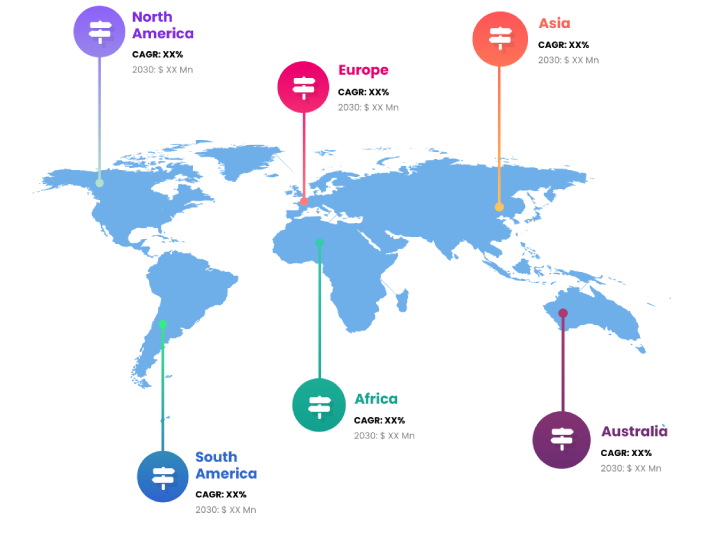The use of big data in healthcare is expanding, as are the use of EHR and EMR systems, patient help in maintaining their electronic health records, and regulatory requirements, to mention a few. These and other factors are all driving growth in the digital healthcare sector. Additionally, the industry is expanding because to a rising trend in preventative healthcare and increased investment in various mHealth companies. By definition, digital health refers to the application of information and communication technology in the field of healthcare for the remote management of chronic conditions.

Mobile health (mHealth), wearable technologies, telehealth and telemedicine, health information technology (IT), and personalized medicine are all part of the digital health market. It provides a range of services that give customers access to early disease detection and chronic disease management. Wearable technology, telehealth and telemedicine, mobile health (mHealth), health information technology (IT), and personalized medicine are all components of digital health. To provide healthcare services, digital care solutions rely on a range of computing systems, networking software, and sensors. Applications for digital health technology include general wellness and medical equipment, among many more. They are also used in the creation of medications and medical equipment in addition to medical diagnosis.
Wearable technology and healthcare information systems make up the majority of digital health technologies. Examples of healthcare information systems include EHR/EMR, Clinical Decision Support System (CDSS), Computerized Physician Order Entry (CPOE), and mHealth. Some examples of wearable technology are insulin pumps, respiratory therapy equipment, pain management devices, and rehabilitation equipment.
The rise in investment from private & public organizations for mHealth startups, the rise in the prevalence of chronic diseases, and the advancement of technology in the healthcare industry are the main factors driving the growth of the worldwide digital health market. For instance, the American Telemedicine Association (ATM) partnered with a digital health company based in the UK and unveiled a new tool for assessing mHealth apps. According to data from the Pew Research Center, adults in the U.S. possessed 97% of telephones and 85% of smartphones as of April 2021. The aging population, which is more susceptible to chronic diseases, is another factor driving the growth of the global digital health industry. According to Beijing, more than 180 million of China's elderly population were believed to be living with chronic ailments in 2019. In addition, the Heart Guide, the first wearable blood pressure monitor with a digital health service, was released in January 2019 by Omron Healthcare, Inc., a division of Omron Corporation. As a result, the market is growing due to the existence of important companies in healthcare information technology as well as an increase in the number of elderly people.
The COVID-19 pandemic's emergence sped up the use of digital health. The pandemic served as a reminder of the value of digital healthcare technologies since they provided remote access to medical services and reduced the risk of virus transmission. In addition, the pandemic tested cutting-edge digital health concepts and methods. During the era of social isolation that prevented the delivery of healthcare services, digital health infrastructure was of great assistance. Both patients and medical staff profited substantially from the usage of telemedicine, which made it simpler to maintain service continuity. The use of digital health for COVID-19 screening increased the effectiveness of the healthcare system in addition to lowering emergency room visits.
For five to six years, one of the most widely used digital platforms in healthcare has been the Internet of Things (IoT). The Internet of Things (IoT) is currently enabling various activities, such as efficient tracking of staff, patients, and inventories; optimizing drug prescription; ensuring the availability of essential medical equipment; and addressing chronic diseases. It has evolved and reached a point where it is significantly transforming the healthcare sector. The development and application of big data play a significant part in enabling an uninterrupted tailored digital experience by assisting a service provider to better manage their time and resources.
Report Coverage
Global Digital Health research report categorizes the market for global based on various segments and regions, forecasts revenue growth, and analyzes trends in each submarket. Global Digital Health report analyses the key growth drivers, opportunities, and challenges influencing the global market. Recent market developments and Digital Health competitive strategies such as expansion, product launch and development, partnership, merger, and acquisition have been included to draw the competitive landscape in the market. The report strategically identifies and profiles the key Digital Health market players and analyses their core competencies in each global market sub-segments.
| REPORT ATTRIBUTES | DETAILS |
|---|---|
| Study Period | 2017-2030 |
| Base Year | 2022 |
| Forecast Period | 2022-2030 |
| Historical Period | 2017-2021 |
| Unit | Value (USD Billion) |
| Key Companies Profiled | CERNER CORPORATION, HONEYWELL INTERNATIONAL INC., ALLSCRIPTS HEALTHCARE SOLUTIONS INC., KONINKLIJKE PHILIPS N.V., MCKESSON CORPORATION, SIEMENS HEALTHINEERS AG, QUALCOMM TECHNOLOGIES, INC., GENERAL ELECTRIC COMPANY, CISCO SYSTEMS, eCLINICALWORKS, Apple Inc, Telefonica S.A., Epic Systems Corporation, QSI Management, Vodafone Group, Airstrip Technologies, Google, Samsung Electronics Co. Ltd, HiMS, Orange, Softserve, MQure, Computer Programs and Systems, Inc, Vocera Communications, IBM Corporation, BioTelemetry Inc. (US), AT&T Inc. (US), Athenahealth Inc. (US), iHealth Lab Inc. (US). |
| Segments Covered | • By Product |
| Customization Scope | Free report customization (equivalent to up to 3 analyst working days) with purchase. Addition or alteration to country, regional & segment scope |
Key Points Covered in the Report
- Market Revenue of Digital Health Market from 2021 to 2030.
- Market Forecast for Digital Health Market from 2021 to 2030.
- Regional Market Share and Revenue from 2021 to 2030.
- Country Market share within region from 2021 to 2030.
- Key Type and Application Revenue and forecast.
- Company Market Share Analysis, Digital Health competitive scenario, ranking, and detailed company
profiles. - Market driver, restraints, and detailed COVID-19 impact on Digital Health
Market
Competitive Environment:
The research provides an accurate study of the major organisations and companies operating in the global Digital Health market, along with a comparative evaluation based on their product portfolios, corporate summaries, geographic reach, business plans, Digital Health market shares in specific segments, and SWOT analyses. A detailed analysis of the firms' recent news and developments, such as product development, inventions, joint ventures, partnerships, mergers and acquisitions, strategic alliances, and other activities, is also included in the study. This makes it possible to assess the level of market competition as a whole.
List of Major Market Participants
CERNER CORPORATION, HONEYWELL INTERNATIONAL INC., ALLSCRIPTS HEALTHCARE SOLUTIONS INC., KONINKLIJKE PHILIPS N.V., MCKESSON CORPORATION, SIEMENS HEALTHINEERS AG, QUALCOMM TECHNOLOGIES, INC., GENERAL ELECTRIC COMPANY, CISCO SYSTEMS, eCLINICALWORKS, Apple Inc, Telefonica S.A., Epic Systems Corporation, QSI Management, Vodafone Group, Airstrip Technologies, Google, Samsung Electronics Co. Ltd, HiMS, Orange, Softserve, MQure, Computer Programs and Systems, Inc, Vocera Communications, IBM Corporation, BioTelemetry Inc. (US), AT&T Inc. (US), Athenahealth Inc. (US), iHealth Lab Inc. (US).
Primary Target Market
- Market Players of Digital Health
- Investors
- End-users
- Government Authorities
- Consulting And Research Firm
- Venture capitalists
- Third-party knowledge providers
- Value-Added Resellers (VARs)
Market Segment:
This study forecasts global, regional, and country revenue from 2019 to 2030. INFINITIVE DATA EXPERT has segmented the global Digital Health market based on the below-mentioned segments:
Global Digital Health Market, By Component
Software
Hardware
Services
Global Digital Health Market, By End User
Healthcare Providers
Payers
Healthcare Consumers
Others
Global Digital Health market, Regional Analysis
- Europe: Germany, Uk, France, Italy, Spain, Russia, Rest of Europe
- The Asia Pacific: China,Japan,India,South Korea,Australia,Rest of Asia Pacific
- South America: Brazil, Argentina, Rest of South America
- Middle East & Africa: UAE, Saudi Arabia, Qatar, South Africa, Rest of Middle East & Africa
You will get in-depth and extensive digital health market market research and competitor analysis for your business to help you develop more profound insights into the digital health market Market.
Through INFINITIVE Data Expert is a professional Market Research services, I will identify the digital health market market size, demand & opportunities, growth rate, and target audience with a comprehensive analysis of your competitors.



